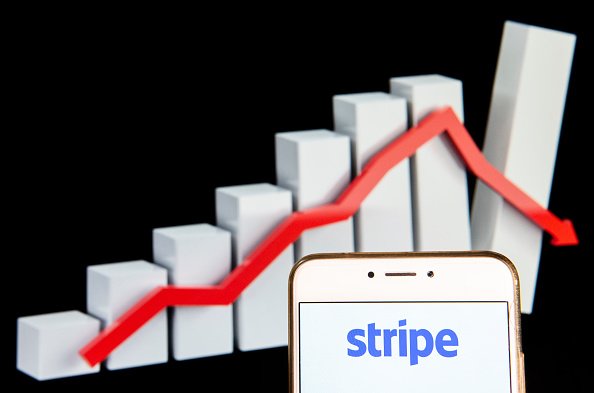
The big idea was to become the transfer agent, brokerage and clearinghouse for all private stock transactions in the world.
Roughly 15 months later, in late 2022, the company’s CEO, Henry Ward, told Axios that Carta was worth even more – $8.5 billion – following a separate secondary sale.
(He did not disclose how many shares were sold at this valuation or who bought them.)
Now, Carta is seemingly returning to its roots – and an earlier valuation that’s probably better suited to the business.
Over the years, Carta has raised roughly $1.2 billion from investors, according to the startups tracker Tracxn.

Cendana, Kline Hill have a fresh $105M to buy stakes in seed VC funds from LPs looking to sellIf you ask investors to name the biggest challenge for venture capital today, you’ll likely get a near-unanimous answer: lack of liquidity.
Cash-hungry venture investors, whether VCs themselves or their limited partners are increasingly looking to sell their illiquid positions to secondary buyers.
“We simply passed the hat around to our existing LPS at Kline Hill and Cendana,” said Kim.
It then passes these opportunities to Kline Hill, which values, underwrites and negotiates the transaction price.
Traditional secondary investors, such as Lexington Partners and Blackstone, recently raised their largest secondary funds ever.

The secondary market allows for that now.”Stripe’s recent secondary sale is a clear example of this.
Leung said that Sapphire deployed roughly $500 million into the secondary market in 2023, and expects to deploy the same if not more into secondary stakes in 2024.
But given the maturation of the secondary market, it doesn’t need to thaw before the market is really ready.
The secondary market “is playing a huge role,” Leung said regarding companies waiting to go public.
[LPs] are not pressuring the GPs to push out their assets, which reduces the demand for the public market.”

If Reddit prices too high out the gate, it loses out on potential buyer interest and could trade down from its IPO valuation instead of building momentum.
Reddit’s most recent primary round in 2021 raised $410 million at a $10 billion valuation from investors, including Fidelity, Quiet Capital and Montauk Ventures, among others.
The market has obviously changed since then, and going out at that $10 billion valuation wouldn’t be smart.
What happens nextThe $5 billion valuation that Reddit may pursue is not risk-free.
Reddit offering shares to its top users is likely a ploy to avoid the stock entering meme-trading territory, Martin said.

Bfree, a tech-enabled debt collection startup based in Nigeria, was founded to automate and introduce ethical debt recovery processes after its founders witnessed the use and adverse effects of aggressive retrieval techniques, such as incessant calling and debt-shaming, by predatory digital lenders.
It also launched a loan collection management SaaS dubbed Workflow, which targets companies with in-house collection teams or those that are not keen to outsource.
Bfree to create secondary market for loansIts current loan portfolio stands at over $400 million, out of which it has managed to collect 12.5%.
He added that they also have an analytics solution for banks to help them gain insights into secondary debt markets.
“We foresee the growing prominence of credit management and are confident that Bfree will spearhead the creation of a secondary market on the continent for distressed assets.

Cap table management startup Carta has been dealing with a PR nightmare for the past couple of days.
The short of it is that one sales employee, according to Carta, used confidential data from one of the company’s customers to craft a sales pitch for a secondary stock sale.
The problem, according to Carta, is taken care of.
Before we dive into what this mess might portend for Carta, we need to understand the state of affairs at the company before this came to light.
While Carta hasn’t raised a round since that 2021-era transaction, per secondary data from platforms like Hiive Markets, Caplight and Notion, its current valuation is estimated to be about half of its last primary round.

Carta’s decision to exit the secondary share trading business was a quick response to the controversy that emerged after it was chastised by customers for using private data to foster its equity transactions.
The Exchange explores startups, markets and money.
Read it every morning on TechCrunch+ or get The Exchange newsletter every Saturday.
After a customer criticized Carta for working to connect buyers and sellers of startup shares on its secondary trading platform without permissions, there have been several questions regarding data security and just what — or who — its product is.
Cloudflare’s CEO and co-founder, Matthew Prince, argued in the aftermath, for example, that the only way for Carta to “justify [its] multiple [and] valuation” was to pitch investors that it was going to build “the world’s biggest secondary market” predicated on the data it holds on behalf of its customers.

The big idea was to become the transfer agent, brokerage and clearinghouse for all private stock transactions in the world.
While the move made Carta more valuable in the eyes of its venture backers — a company has to scale after all!
In his post tonight, Ward downplayed the impacts of ending secondary trading on Carta, saying the revenue derived from the practice is minuscule compared with Carta’s other business offerings.
Striking a humble tone, Ward wrote that “ALL of my ideas around liquidity — auctions, investor matching, secondary trading, open tender offers, have not worked.
Many people think we are best poised to solve liquidity because we have cap table data.

The investors surveyed clearly aren’t the only ones who are excited about a potential Stripe exit in 2024, either.
According to secondary data tracker Caplight, there has been an absolute flurry of buyers looking to get shares in the company in recent months.
On Tuesday, literally the day after New Year’s Day, a secondary sale closed that valued Stripe shares at $21.06 apiece; that values the startup at $53.65 billion, according to Caplight data.
There are a few reasons why this deal is worth paying attention to.
For one, Stripe’s $53 billion value marks an increase from the company’s most recent primary round last March, when Stripe was valued at $50 billion.

Startup valuations — especially at the later stages — have come down drastically over the last year and a half of the ongoing market correction.
Companies that once boasted sky-high valuations like Klarna and Getir have seen their valuations slashed in their latest funding rounds.
Outside of Klarna and Getir, though, very few late-stage companies have raised new primary rounds since the booming 2021 market.
This is a noticeable haircut from the $25 billion valuation it garnered in 2021.
A recent survey of venture secondaries investors found that for those who focus on the industry, many think prices may still have room to drop.













